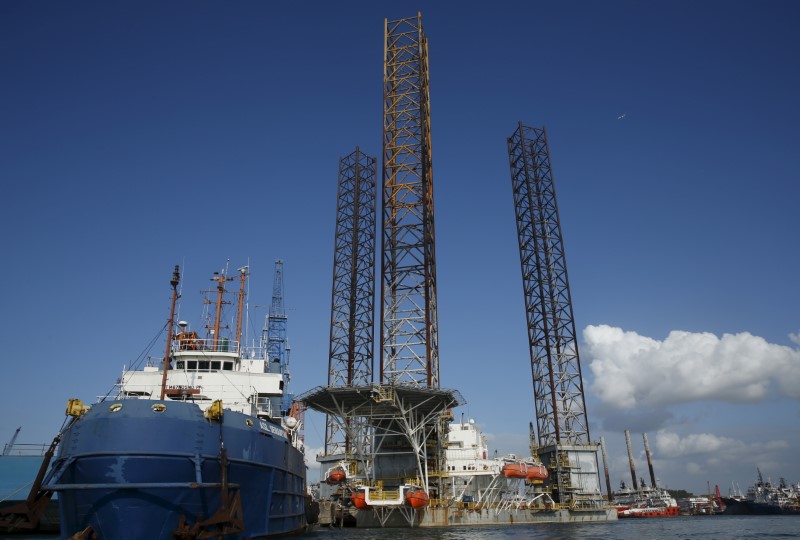TOKYO (Reuters) - Oil prices extended gains on Monday, but the increases were limited as the dollar recaptured some ground after touching its lowest level in more than three years on Friday.
U.S. West Texas Intermediate crude for March delivery (CLc1) was up 5 cents, or 0.1 percent, at $61.73 a barrel by 2348 GMT, after rising 4.2 percent last week.
London Brent crude (LCOc1) was up 15 cents, or 0.2 percent, at $64.99 after rising more than 3 percent last week.
The U.S. oil rig count, an indicator of future production, rose by seven to 798, its highest since April 2015, according to a weekly report from General Electric's Baker Hughes unit. [RIG/U]
That marked the first time since June that drillers added rigs for four consecutive weeks, and the figure was well up on the 597 rigs that were active a year earlier as energy companies have boosted spending since mid-2016 when crude prices began recovering from a two-year crash.
Surging U.S. production is offsetting efforts by the Organization of the Petroleum Exporting Countries (OPEC) and some other producers including Russia to curb production by 1.8 million barrels per day (bpd) till the end of 2018.
Iranian oil minister Bijan Zanganeh said on Saturday that Iran hoped to continue to export 2.1 to 2.2 million barrels per day beginning around April and to sell 500,000 bpd to India in the next fiscal year.
Money managers slashed their bullish wagers on ICE Brent crude oil futures by the most in nearly eight months in the week to Feb. 13, data showed, as prices plunged amid concerns of oversupply.
Speculators also cut net long U.S. crude futures and options positions in the week to Feb. 13 by the most since late August, the U.S. Commodity Futures Trading Commission (CFTC) said. [CFTC/]
A little-noticed addition to the U.S. budget deal approved last week will help oil producers by more than tripling a tax credit for injecting carbon dioxide back into the earth to increase crude output.

U.S. financial markets are closed on Monday for the Presidents Day holiday.